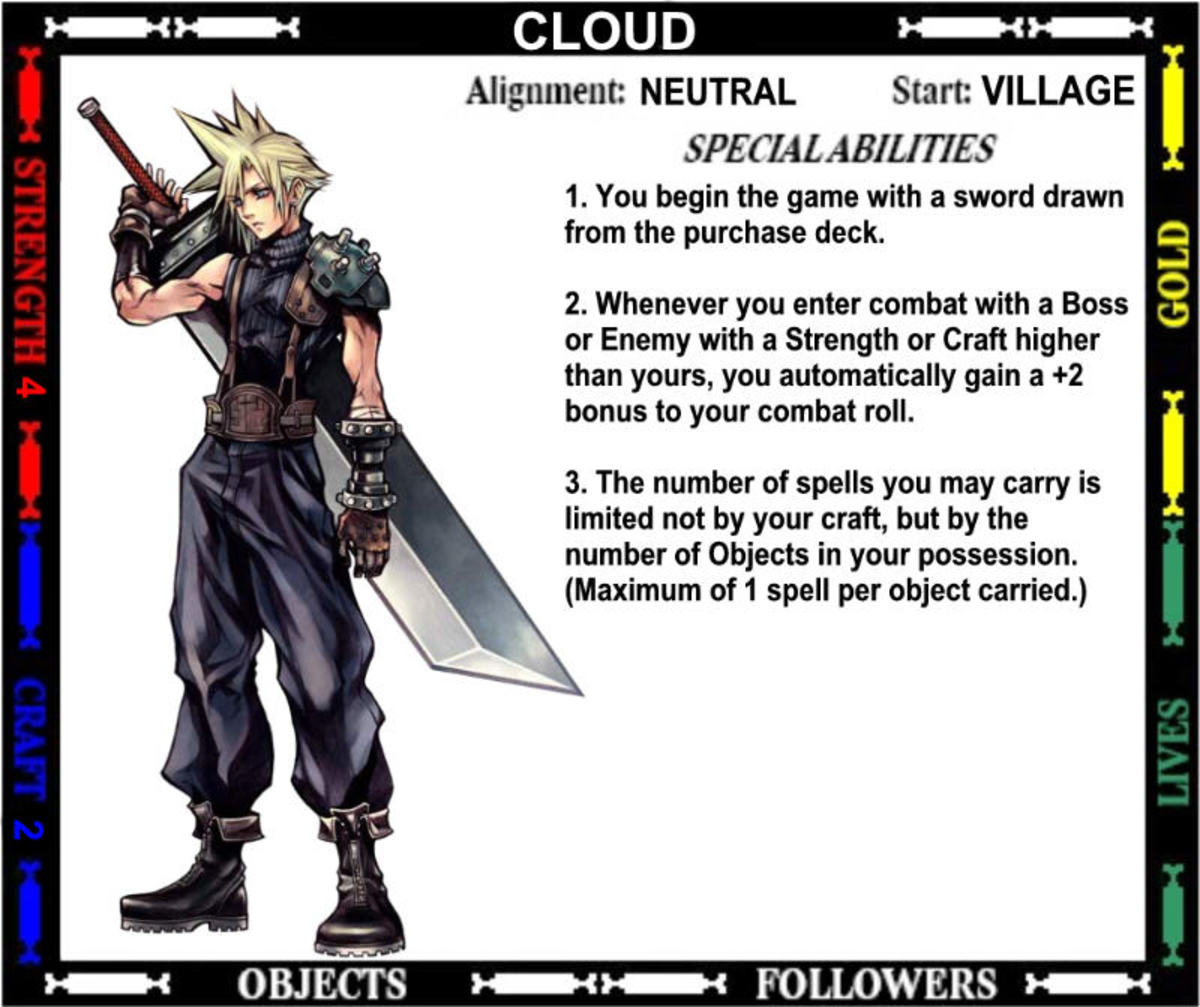- HubPages»
- Games, Toys, and Hobbies»
- Computer & Video Games»
- Roleplaying Video Games»
- Japanese Roleplaying Video Games
Dreams of Tidus in Square-Enix's Final Fantasy X (FFX) for the Playstation 2 (PS2) Revisited
Some Video Games Tell Stories...
Have you ever had the experience where, after reading a novel, or watching a film, you know you have to read it or watch it again, just to go back and visit a place and characters that you cared about and missed? I know for myself, Ken Kesey's One Flew Over the Cuckoo's Nest in novel, and Steven Soderbergh's "Schizopolis" in film both instantly come to mind when I ask myself this question.
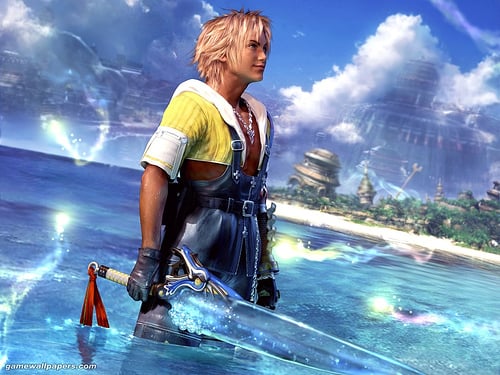
The more I ask this, the more it becomes obvious almost every book or film I have ever loved, I have loved for precisely that reason: I cared about the characters and their story so much, I completely suspended disbelief and grew attached. As juicy as the psychological implications of this statement sound, I do not think I resemble anything more than the common book or movie lover in this respect. We are human beings, we love a good story almost more than a full belly, and I cannot think of anything we love more than a full belly. Not even sex, when we are honest with ourselves. So the stories I love most are the ones with characters, or people, who do, and feel, and say, and think, and act in ways that even if I cannot identify with, I most certainly recognize, and have feelings and opinions about.
We are complicated creatures who live in a complicated world that requires us at all times to not only be aware of but compromise between and deal with countless incompatible and conflicting influences that are the very real substance of our every day lives. While stories offer us an escape, they also reassure of our belonging to the whole: we recognize the struggles and fears of characters as like our own, no matter how different they may be in some regards. This strange, yet familiar connection is powerful in the hands of master storytellers.
Such master storytellers have, throughout history, developed and pursued new manners in which to tell their stories. In ancient and pre-historic times they gathered around fires to keep warm and simply needed something to talk about to pass the long cold night hours. The best stories were asked to be told over again and again, until they became oral tradition. Oral tradition became a written one as soon as storytellers go their hands on pen and paper, as many of the oldest and most abundant ancient Sumerian and Greek texts reveal.
Play The Newest Final Fantasy, Final Fantasy XIII
Get a Playstation 3 to find out why Final Fantasy is so great!
Eventually the printing press was developed and individuals could create their own long and complex narrative on a mass level for the first time. The number of serious storytellers exploded; they always do with the coming of a new storytelling medium. After the printing press, mechanical evolution had quite a ways to go before it could reproduce, in quantity, images and sounds the way it could the twenty-six letters of the alphabet. So for a very long time the best storytellers all worked in print. Some in novels, some in periodicals, some in poetry, some in prose, and so forth. The longer print has been around, the more ways storytellers have figured out how to utilize it to create unique storytelling experiences.
Today, we find ourselves in a similar evolutionary cycle of story telling. One not based, however, on the printing press. Story telling is growing in leaps and bounds in response to advancements in mechanical, or at this point computerized, reproduction of image and sound. First there was radio and silent film. Then the two combined into television and film with sound. Then came video games. And while, like any medium, it was in its infancy, the great storytellers of our time did not utilize it. Today however, video games are far more sophisticated than their humble beginnings in the 1970s could have foretold.
Today, I find myself longing to revisit the characters and places I learned about not in a book, or a movie, but rather in a video game. This article, at its heart, seeks to establish a spot for this game's achievement in the history of storytelling. For I have found myself time and again thinking back to tough moments the characters faced and the decisions they made in much the same manner I fondly recall the nut house characters in Kesey's novel. I have even replayed the entire 40+ hour game a second time, not to find the secrets, not to reach the highest level, not even to get the best weapons, but simply, to relive one of the best stories I've experienced in a long time. The title of the game you ask? Final Fantasy X.
Never played? Check out the game's opening sequence below!
Yuna: The Grand Summoner
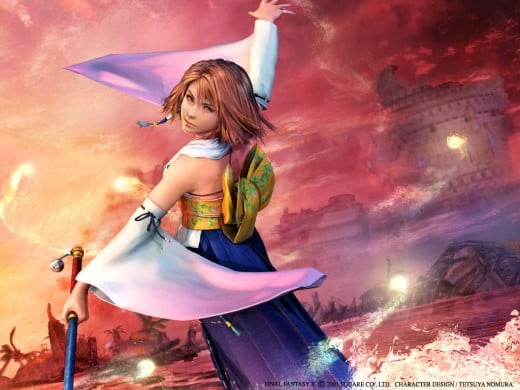
Spira: A land plagued by Sin...
The story centers around a group of seven characters who are known in their world, the land of Spira, as a Summoner and her guardians. A summoner is an important religious person in the land of Spira, for they alone can make a pilgrimage that can rid the land of the gigantic, indestructible monster who roams about Spira destroying cities and killing countless thousands, called Sin. Guardians are special soldiers charged with keeping the Summoner alive until the final fight with Sin. They accompany the Summoner everywhere they go.
There is one religion in Spira, and it is Yevon. Summoners must travel on a pilgrimage to the different temples of Yevon to pray to living stones who will grant them the assistance of gigantic monsters named Aeons. It is the goal of this pilgrimage for the Summoner to grow strong enough to learn how to summon the final Aeon: the only thing powerful enough to kill Sin. For over a thousand years Summoners have made pilgrimages to defeat Sin. Sometimes successful, sometimes not. The use of religion and the concept of SIN rings eerily familiar in a way that lends Final Fantasy X almost satiric qualities, which keep you reflecting upon our own situation and its similarity to Spira without ever shoving a political agenda down your throat the way Hollywood does at times when making a statement.
In the end however, Sin never dies. It is reborn even if it is defeated by the final Aeon. This means that for over a thousand years the people of Spira put their hope in Summoners who throw their lives away to defeat an enemy they cannot. At best Sin will be destroyed temporarily, granting what is known in Spira as "the calm." A calm lasts about 10 years, and then somehow Sin respawns and begins to wreak havoc and destruction. This has kept Spira in a state of technological stagnation for the last 1000 years. Cities are destroyed before advancements can be made. Instead of growing, Spira has been stuck in a cycle of rebuilding and destruction.
Final Fantasy X follows the pilgrimage of Yuna, daughter of High Summoner Braska. One earns the title "High Summoner" by defeating Sin, and even though Yuna's father died to kill sin, ten years later, his daughter is asked to make the same sacrifice, only on this pilgrimage something unusual has taken place. Summoner Yuna has a very unique guardian, a young blitzball, the national pastime of Spira (think water polo meets soccer or just watch the movie above to learn more), player from Zanarkand named Tidus. What's so unusual about Tidus? Well, he left Zanarkand, a futuristic city with technology far beyond Spira, to come to Spira only to find that when he arrived Zanarkand has been destroyed for 1,000 years. One day for Tidus is like a 1,000 years for Spira.
The Rest of the Party
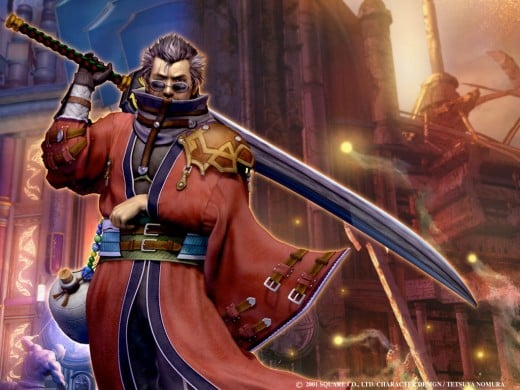


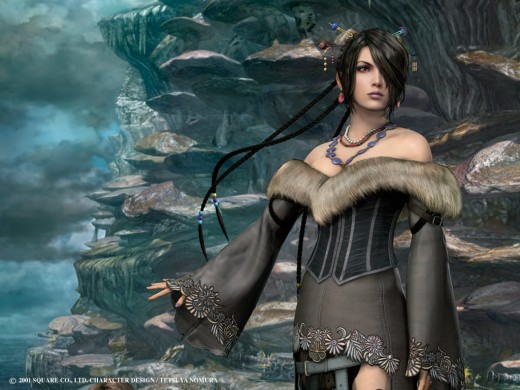
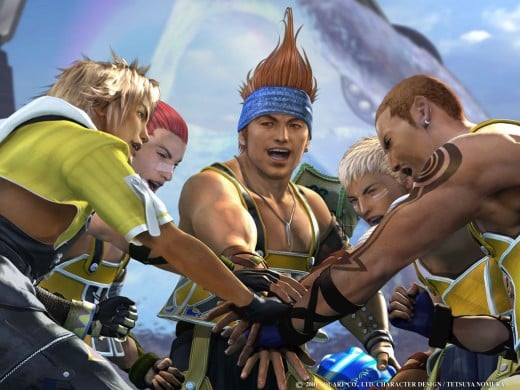
Final Fantasy X and the future of storytelling
The characters, in their struggles, concerns, and fears for and about one another and their situation, grow to become a unit that will stand together no matter what outside force tries to tear them apart or defeat them. Everyone of the six guardians is a unique and believable character with amazing detail not only in their presentation within the game, but in their development as dynamic characters.
The storytellers at Square Soft, the makers of Final Fantasy X, weave the tale masterfully, not giving away secrets, but saving them until they make the most emotional impact on the player. This deftly weaving of character, theme, and plot are new to the video game industry, and it means that the storytellers of our time have found a new medium from which to tell their stories in ways never before thought possible: a way in which the person they are telling it to can discover, and help create, the story as they experience it. Video games offer a seamless format for doing this which is far superior to campy "choose your own adventure" books.
In the end, Final Fantasy X leaves an emotional wallop. The closing sequence reveals some foundational truths about Spira and its relationship to Zanarkand that drastically change the nature of what both you the player and the characters onscreen thought was going on. It was a surprise I should have seen coming, but like the best movies and books do, I was distracted by the immediacy and intensity of the crisis at hand in the story. And here I was shocked and emotionally distraught at what I now knew had happened and was happening to the characters. For the first time in my life, I knew exactly what a character in a video game was going through, and my heart went out to them.
The ending is a very private moment for those who have finished the game, as well as the characters in it. I will not spoil the mystery of Spira's thousand year cycle and Tidus's sudden time travel/appearance (?) from a land destroyed in antiquity, but I will say that to this day, I have not forgotten what happens at the end of the game, I mean, story. This is my point: I am left reliving my favorite moments with the characters much the same way people remember the "Lord of the Rings" trilogy. Video games have reached maturity. They are now, for the first time in history, able to offer the brilliant storytellers of our age the most engrossing and personalized medium ever available upon to tell stories.
Final Fantasy X is just the beginning, however, and only one of numerous examples being released every single month of just how good video games are getting at telling stories. This is exciting for those of us young enough to think forward to the future and the possibilities in store for us. But it is also frightening for the centers of wealth and power that have sprung up because of the motions picture's place in the 20th century at the top of the storytelling food chain.
Some will kick, some will scream, but mostly, the smart ones will switch over. Warner Brothers, Sony, and others have already committed production studios to video games the size and price of which no one in Hollywood in the 1970s would have believed. Until video games come to be the dominant form of multimedia storytelling there will be interesting casualties of war, if you will, like movie adaptations of video games that are not near as entertaining, or well-made as the games themselves (think Hitman). There will also be interesting cross-genre hybrids, collaborations, and mistakes. In the end, however, video games can continue to evolve in ways we cannot even predict yet, and therefore, they will eventually assume the top spot now reserved for Hollywood.
Until then I will keep eagerly buying new Final Fantasy titles (which is just one among many amazing examples of first-rate storytelling in video games) and going to the new blockbuster films knowing the two are destined to eventually become part of one another. I do not know what the future looks like, but I do know that it will have the power to tell the most-engrossing stories ever told by humanity, and that is an exciting thought.
Know of any other games whose story is so good the world should know? Leave a comment and we'll start a list right here and now!
Final Fantasy
What was your favorite Final Fantasy?
and Don't Forget the Strategy Guide!
The Latest RPG Titles
Other Hubs About Video Games
- RPGs for the Playstation 3 (PS3): An Oldschool Perspective, Part 1
Given the lackluster entrance into the market of not only the Playstation 3 (PS3), but also the early titles offered for it as well, there was no need for an article about the PS3's offering of role playing... - RPGs for the Playstation 3 (PS3): An Oldschool Perspective, Part 2
This is the second hub in a series examining RPGs for the Playstation 3. As I've stated before, there are (finally) a lot of RPGs on the PS3, and a lot more on the way. As someone who has played games... - RPGs for the Playstation 3 (PS3): An Oldschool Perspective, Part 3
One of the best things about the RPG genre is that it can be crossed and mixed with almost any other genre. This has lead to some of the best games out there. In part 3 of this series on RPGs for the PS3,... - Video Game Culture, An Online Dissertation pt. 1: Atari 2600, Nintendo Entertainment System, and the
Somewhere between pop culture and computer software there lies an intriguing industry of multimedia entertainment that wholly did not exist thirty years ago. Video games are not only the fastest growing of...










